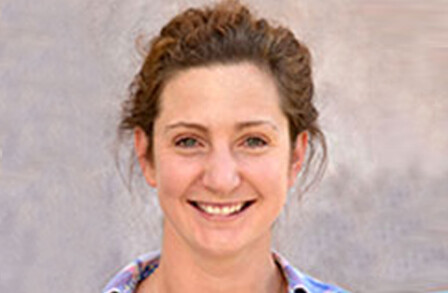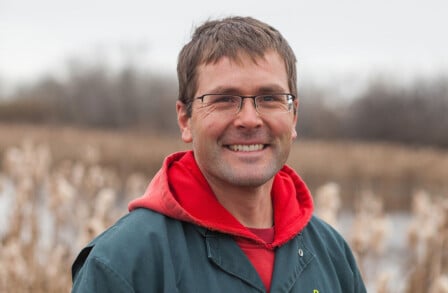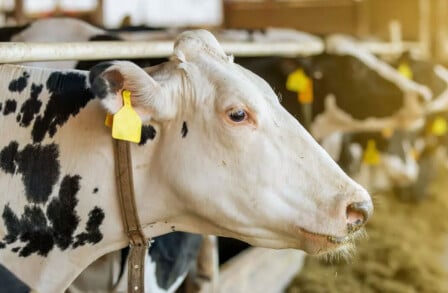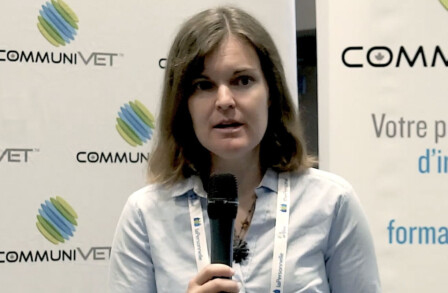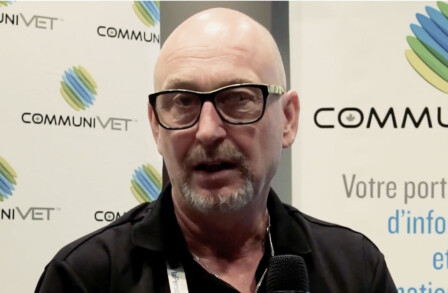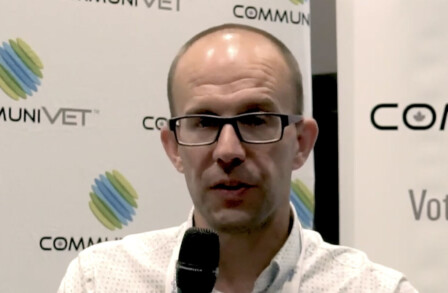Education
Dairy cows are increasingly being dried off at higher milk production levels, raising concerns about their health and welfare during the dry period. This elevated production can result in problems such as udder engorgement and milk leakage, thereby increasing the risk of new clinical mastitis cases as cows transition into the dry-off phase.
Sponsored by


Do you want to sharpen your eye for lameness? Are you great at lameness but struggle to explain to owners and colleagues what you see? Improve your detection skills with this video presentation and practice your eye on a variety of lamenesses.
Sponsored by


As we strive to decrease the use of antibiotics in pork production, prioritizing the functional aspects of nutrition is increasingly important to sustain the health and growth of pigs.
During this webcast, Dr. Dan Columbus will present information on the impact of macronutrient and micronutrient content in diets on the immune status and welfare of pigs.
Point of care ultrasound (POCUS) techniques represent a fast straightforward means to monitor and diagnose equine patients. Inexpensive pocket ultrasound devices are increasingly being used as ‘an extension of the stethoscope’ to answer focused clinical questions.
During this webcast, Dr. Claire Underwood will cover some of the devices available along with techniques for equine abdominal POCUS. She will also discuss case examples of their use in monitoring and diagnosis.
In this webcast hosted by Dr. Alycia Chrenek, Dr. Jeff Caswell will provide an overview of Mycoplasma bovis pneumonia, arthritis, and otitis in beef and dairy calves, and individual-animal diagnosis. While he briefly touches on some details about the bacterium and its interaction with the calf's immune response, his presentation focuses on the different diseases caused by M. bovis. He discusses their clinical and pathologic appearance, as well as various approaches to individual-animal...
Sponsored by


In lieu of contracted native beef cattle feeder supply and unwillingness of packers to harvest native Holstein steers, beef x dairy cross steers and heifers represent an important class of cattle on feed. As beef x dairy cattle make up an increasing proportion of cattle on feed research into performance, carcass attributes and expected health outcomes represent important areas of discovery. This presentation will aim to summarize the current cattle feeding landscape in North America, the...
Sponsored by


News and products
Dr. Nathan Erickson is the recipient of the 2024 Veterinarian of the Year Award from the Western Canadian Association of Bovine Practitioners (WCABP) and Boehringer Ingelheim Canada.
Dr. Nathan Erickson (DVM) of the Western College of Veterinary Medicine (WCVM) has received the 2024 Veterinarian of the Year Award from the Western Canadian Association of Bovine Practitioners (WCABP) and Boehringer Ingelheim Canada.
Erickson, who graduated from the WCVM in 2005, is an associate professor in the...
Number of cases negligible but continued diagnostic testing and collaboration with producers are keys to ensuring community health, experts say.
Recent reports coming out of the U.S. of avian influenza virus (H5N1) being found in cattle has been garnering attention. First noted in mid-March as a “mystery illness” when a handful of dairy farms saw a drop in milk production and low appetite amongst some of their herd, traction on this story has grown as additional states began reporting cases....
Watch this video featuring Jenna Donaldson, DVM, who explains the practice model of Trillium Equine Veterinary Services, an ambulatory service that provides after-hour emergency care for horses on a subscription basis.
Watch this video featuring Nigel Caulkett, DVM, MVetSc, Dipl. ACVA, as he discusses the challenges in recognizing chronic pain in cattle through behavioural assessments, as well as the availability of techniques that can provide analgesia in food animals. He also mentions some of the analgesic and anesthetic medications available to manage pain in cattle.
Watch this video featuring Nigel Caulkett, DVM, MVetSc, Dipl. ACVA, as he discusses his approaches to sedation and anesthesia when dealing with a fractious horse. He lists his choice of medications for intramuscular sedation and describes a unique situation he experienced with a wild horse.
Watch this video featuring Pierre-Yves Mulon, DMV, Dipl. ACVS (LA), as he discusses possible diagnoses, solutions, and techniques to consider when assessing and treating a swollen navel in farm animals.



 1 h 05 min
1 h 05 min



